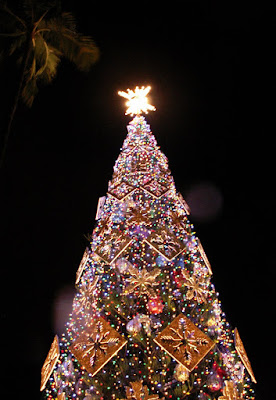On behalf of Hawaii’s lovers of history and advocates for historical literacy we wish all, near and far, Hau’oli Makahiki Hou, Happy New Year.
The tradition of reflecting on the onset of a new year began in Hawaii long ago. As an example we offer our loyal readers around the world a glimpse into this tradition. The following text is a transcript of an editorial from Honolulu’s ‘The Polynesian,’ the official newspaper of the Hawaiian royal government. Edited by Edwin O. Hall, these remarks were published on Saturday, January 3, 1852:
EIGHTEEN HUNDRED AND FORTY-TWO –The old year, with its joys and sorrows, its fluctuations and changes, has vanished into the past, and the sound of its retreating footsteps is lost in the din and hurry of the busy present. It can never be recalled, nor can its record be effaced. Whatever that record may be, in regard to each of our readers, it is sealed up, to remain unopened, till the last great day, for which all other days are made. Let a review of the past make us wider and better for the future.
The New Year opened upon us with a clear sky, and a summer temperature. To the residents from colder climes, the seasons seemed reversed, and June appeared reposing in the arms of January. But this was all the more fortunate for those who desired to keep up the good New York custom of calling upon friends, and greeting them with the compliments of the season; and it was improved accordingly. A large number were out, and we have heard of many who made from thirty to forty calls during the day, and a happy custom it is, and one becoming more and more domesticated in the city of Honolulu.
Other portions of the community enjoyed themselves in riding, feasting, &c. We have seldom seen the streets more crowded with horsemen then on the first of January, 1852. Everybody seemed to be mounted, and determined on enjoyment. Natives, and foreigners generally, made a holiday of it, and appeared determined to make the first day of the year, at least, a “happy” one.
We hope our readers, out of town, participated in the pleasures of the metropolis; to them, and to all, we wish a “HAPPY NEW YEAR.”
Holidays have their uses and beneficial tendencies. When properly observed, they renew friendships, and break up the tedious round of every-day cares and labors. The mental and physical tone is renewed, and becomes more elastic under the influence of those social enjoyments, of which social man is so susceptible. In this view of the case, we were pleased to notice the very general suspension of business in Honolulu, on New Years’ Day, especially, after ten or eleven o’clock, and have no doubt that the recreation thus enjoyed will, very generally, better qualify men for the “battle of life” and its arduous toils, in which they have now fairly commenced another year’s campaign.

